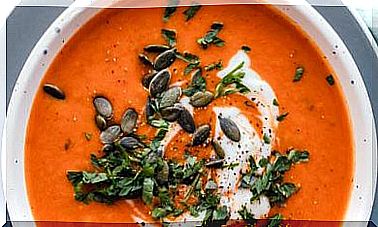The Importance Of Sharing Happiness
Do you know the importance of sharing happiness with others? We are altruistic beings by nature and sharing brings us psychological benefits.

Our nature pushes us to altruism, and this is demonstrated by the fact that the more we help others, the better we feel. Altruism and well-being feed into each other to such an extent that it is cooperation and not competition that has made us evolve as a species. Acting without expecting anything in return and being aware of the gestures of others will make us all happier.
Being altruistic means being sensitive to the needs of others and helping others without being forced to be asked and without expecting recognition or compensation. Certain pessimists tend to see the negative side: I help others because I hope in return for well-being and pleasure and even a “reward” from the person I have helped (who will correspond to me one day, or so I trust) or from the society (who will admire me).
This exists, to be sure, but not that often. And perhaps the motivations and the consequences are confused : that altruism provokes admiration and recognition is an evidence, but it does not exist only because of that.
Why is it essential to share happiness with others?
The survival and success of humanity are due to the fact that we are a social species, capable of collaborative behaviors and mutual aid. Contemporary evolutionary work confirms that it is the capacities for cooperation and altruism, much more than the tendency to compete, that are responsible for the success of animal species, including our own.
Altruism also intervenes in the survival of the planet: without concern for future generations, we could perfectly devastate our natural environment. In short, we are not talking about a caramelized concept of positive psychology that helps us sweeten our daily lives.
Our capacity for altruism is deeply rooted in the brain: a myriad of research has clearly shown that we are naturally and genetically programmed for altruism and are allergic to the suffering of others and injustice.
For this reason, nature and evolution have established mechanisms to reinforce this trend and, above all, a close and two-way link between altruism and well-being:
The more we help others, the happier we feel; and the happier we are, the more we tend to help others.
Altruism in the genes
Old works show that the simple fact of being invited to a piece of cake or finding a coin encourages us to help more the people we come across next.
A recent study has even explored helping behaviors and giving : after evaluating the emotional well-being of 805 people, the researchers gave them a small sum (eight euros) in compensation for the time invested in answering the questionnaires.
They explained that they could keep the money or deposit a part in a box on departure, and that the final amount would be given to a humanitarian association.
The results showed a net correlation between well-being and the importance of the donations made.
Thus, most people have a deep tendency to share and distribute happiness.
Through what mechanisms? They are multiple:
- The pleasure of thanks. Personally, I like to stop to let pedestrians pass on crosswalks without traffic lights: that is how I usually have the right to smiles or small gestures of thanks.
- The satisfaction of having pleased.
- And undoubtedly a deeper feeling: the impression of having sown a small seed, of perhaps having motivated the other person to be a little more kind and altruistic themselves.
An urgent challenge: how do we get rid of materialism?
It is important to reflect on how to favor these behaviors in this period of crisis, materialism and rampant individualism.
If altruism does not acquire, little by little, a prominent place in our minds and in our societies, the human race could suffer many misfortunes, as Martin Luther King pointed out in his last speech:
“We must learn to live together as brothers; otherwise, we will all die together like idiots. “
Let’s not be idiots: let’s be altruistic! That will make us happier.
6 practical tips to be more altruistic
Being more altruistic does not only imply sharing happiness. It involves getting to know others in depth, giving them enough time and space to make them feel comfortable in our company. But what practical tips are there to encourage this attunement?
1. Notice the little things
There is no use wanting to launch into an exceptional and sacrificial altruism: leave this for the saints and be content with an everyday and ordinary altruism, made of small simple gestures, and that will be perfect!
2. Smile at life
Being in a good mood encourages altruism. As often as possible, smile and look at everything that happens around you.
3. Talk with your actions
Altruism rests on affection for others, on a sincere and happy desire to help others: be happy to help out. Sinister individuals give moral lessons, happy individuals put them into practice without too many speeches.
4. Think about what you have received
Reflect regularly, before going to sleep for example, on the things that other people have done during that day for you and that have pleased you: remembering those little attentions will inspire a gratitude that will feed your own altruism.
5. Make it a personal decision
Don’t wait for them to ask for your help to help; do not wait for them to thank you to continue helping. It begins by paying attention and listening; then you’ll see if you can do more or not.
6. Give it all the value it has
Remember its triple “usefulness”: it is beneficial for the person you help, for you and for the world (every little gesture of altruism makes the world better and more livable!).









